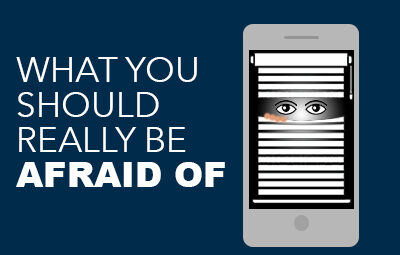It is easy to scour through our social media feeds and develop feelings of FOMO, or “fear of missing out,” while reviewing the lives of others. While the term itself may be of recent vintage, the feeling isn’t new. And it’s especially exacerbated by the fact that our personal lives are now plastered all over the internet.
Suddenly, we find ourselves reflecting on our lives and feeling like they are, essentially, inadequate. This fear of missing out can leave us attached to our cellphones, addicted to our devices. Social networking sites have become oversaturated highlight reels of our lives. But as with all highlight reels, the picture is incomplete: we only see the pinnacles.
Social posts were intended to be instantaneous, off-the-cuff glimpses into our lives, but instead have become carefully crafted pieces, most likely with a filter added on. Social media provides endless opportunities to gain explicit approval or feedback, pressuring us to make our lives appear more glamorous than they actually are. Social media can fuel our desire for fantasy, and for our lives to resemble a blockbuster action flick. A survey conducted by Gumtree.com reported that 86 percent of young people feel pressure to succeed in their relationships, finances, and jobs before hitting 30 (Strong, 2016), and social media can add to that pressure.
This fear of missing out is something many of us experience on a daily basis. According to a recent study by UK disability charity Scope, 62 percent of the 1,500 Facebook and Twitter users surveyed said they felt inadequate, and 60 percent said they had feelings of jealousy from comparing themselves to others (Abrams, 2017). To keep up with our social media friends—all of whom seem to be doing so much better than we are—we put on ‘rose-colored glasses’ and fail to see the whole picture of our own actual lived experiences.
Constantly comparing ourselves to others leads to strain and discontent, and is detrimental to our mental health. What if, instead of making negative and unrealistic comparisons, we focused more on the positive in our own lives?
The fear of “missing out” because we don’t have something our friends have is a false fear. But missing out on our own lives—and not being mentally present for our family, friends, and loved ones—is a valid concern. If we didn’t worry so much about what others are doing, and took more pleasure and pride in what’s going on in our own lives, we could get back to using social media for its intended purpose: as an amazing addition to, not a replacement for, our real-life relationships.
If there is anything to fear, it is missing out on your own life because you are too invested in the virtual social life of someone else.
Abrams, Allison. (2017). Mental Health and the Effects of Social Media. Psychology Today.
Strong, Rebecca. (2016). Social Media, FOMO and the Perfect Storm for the Quarter-Life Crisis. Huffington Post.
As always,
Be social. Stay social. #UMSocial
Post written by McKenna Whipple, Social and Digital Media Content Specialist at UMSocial.



